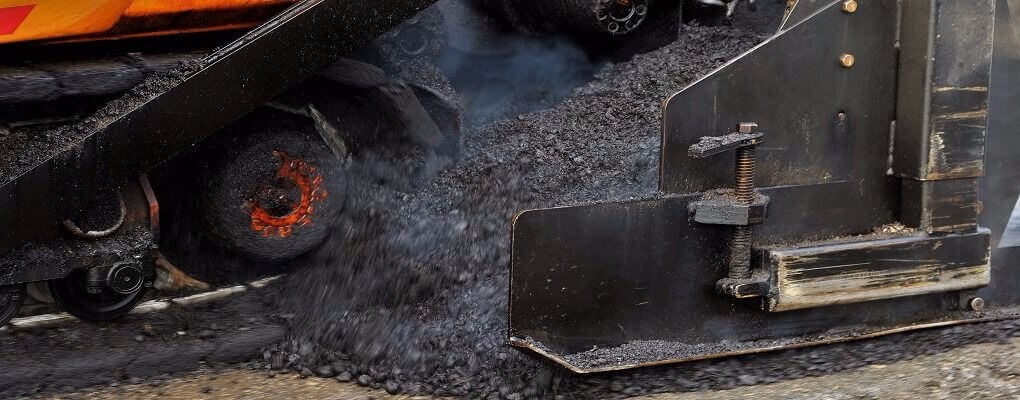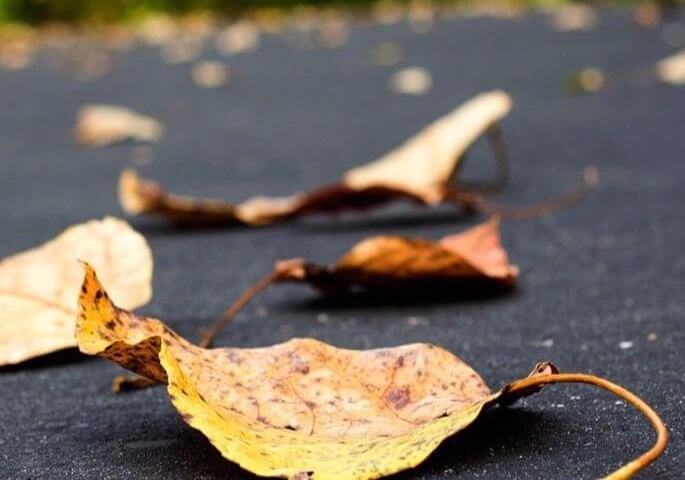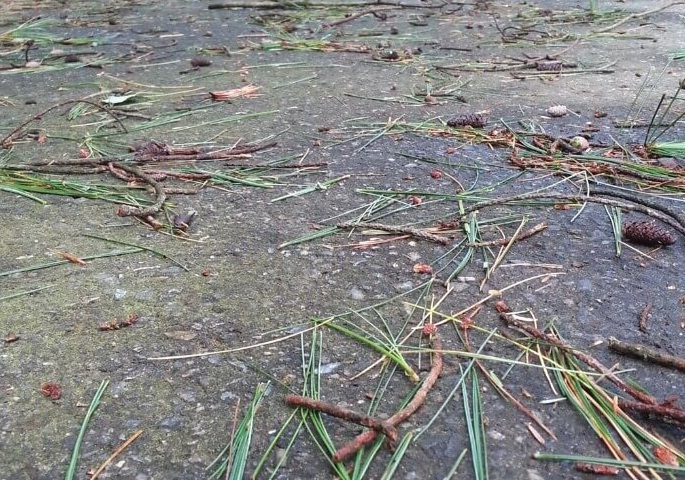Assuming you had your asphalt paving done by professionals who took the time to do it right – proper drainage installed, good aggregate base, and nice even grading – you can expect it to last a long time. That said as with just about anything you use, doing proper maintenance and caring for your driveway or parking lot will maximize its useful life.
Here are seven tips that Burnaby BlackTop recommend to help ensure that you get the maximum use from your driveway and parking area.
1.) Let it harden properly when new:
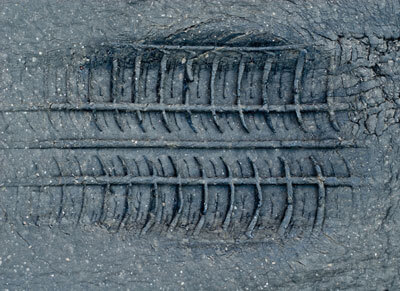 We all love to use our shiny new toys right away, and a nicely paved new driveway is no different, but giving it the time to set and harden is step one of making sure it lasts its full lifetime. As tough as asphalt is, if you place weight by walking or driving over it before it really has had a chance to cool down and harden then you may weaken or damage the surface. If it’s laid on a hot summer day we recommend 2-3 days to let it fully settle, 1-2 days in spring or fall when the weather in the Vancouver area is usually cooler.
We all love to use our shiny new toys right away, and a nicely paved new driveway is no different, but giving it the time to set and harden is step one of making sure it lasts its full lifetime. As tough as asphalt is, if you place weight by walking or driving over it before it really has had a chance to cool down and harden then you may weaken or damage the surface. If it’s laid on a hot summer day we recommend 2-3 days to let it fully settle, 1-2 days in spring or fall when the weather in the Vancouver area is usually cooler.
2.) Remove debris and rocks
Rocks, sticks and even leaves are all potential sources of wear and tear. Keeping your driveway free of debris and making sure that build ups don’t occur is a major step in making it last. Rocks and gravel in particular when driven over put considerable pressure on the asphalt surface and may cause cracks or holes to appear much earlier than would otherwise be the case.
3.) Keep it clean and remove spills
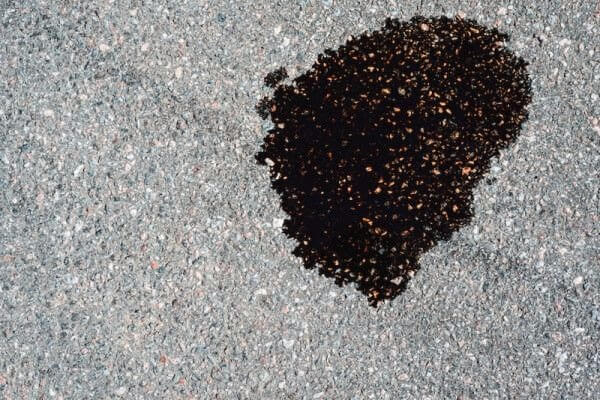 Spills or leaks from parked cars may stain or if composed of petrochemical substances may directly attack your asphalt driveway and should be removed as soon as they are noticed. Depending on the material you may need to soak up the spill in which case kitty litre is often useful. Leaks from car radiators or gearboxes can cause stains and damage the asphalt so should be cleaned up ASAP.
Spills or leaks from parked cars may stain or if composed of petrochemical substances may directly attack your asphalt driveway and should be removed as soon as they are noticed. Depending on the material you may need to soak up the spill in which case kitty litre is often useful. Leaks from car radiators or gearboxes can cause stains and damage the asphalt so should be cleaned up ASAP.
OIL STAINS: With a large bristle brush scrub the stain vigorously until it starts noticeably separating. If there is a lot of oil soak up the excess with kitty litter or sand. Once scrubbed you should rinse the remaining stain with water and sprinkle some powdered laundry detergent on it.
RADIATOR COOLANT: Apply a degreaser if you have access to one, they can be bought at Canadian Tire. Let the degreaser soak in for 5 minutes and then scrub vigorously with a stiff brush. Hose the area down with water and detergent and the pressure wash as a final step. Repeat as needed.
A mixture of baking soda and water may also be used if the substance is acidic or might leave a stain, Otherwise good old soap and water is usually best.
4.)Regularly Seal Coat your Driveway
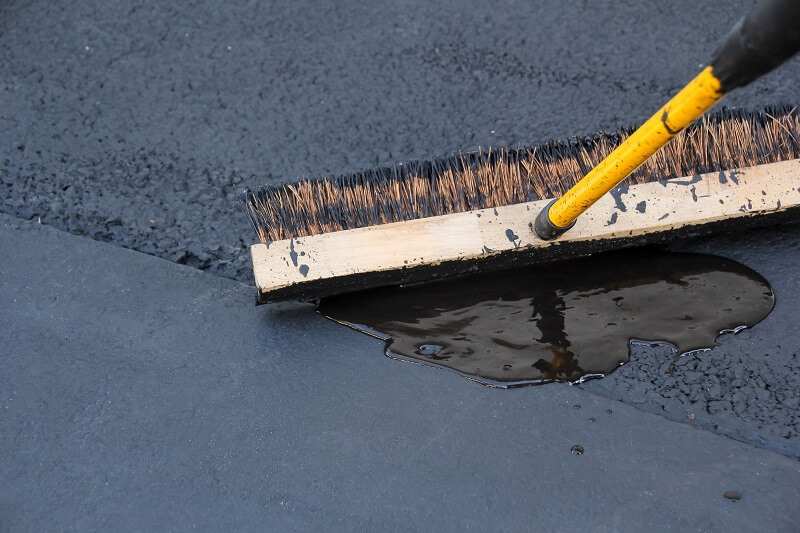 Seal coating is a fantastic way to both refresh the appearance of your pavement and adds to its longevity. Small cracks and imperfections are filled and sealed, so they don’t get worse, and an additional impermeable layer is added. Some of the material in the sale coat also soaks into the asphalt helping maintain it and replacing some of the more volatile components of the cement that are mixed with aggregate to make tarmac. It’s somewhat like putting on good hand cream when your skin drys out helping it maintain flexibility and water resistance. Burnaby Blacktop recommends seal coating your driveway or parking lot once every 3-5 years. As with everything, make sure your work is done by professionals and not fly by night operators who use spray on sealant that simply does not last or protect the asphalt.
Seal coating is a fantastic way to both refresh the appearance of your pavement and adds to its longevity. Small cracks and imperfections are filled and sealed, so they don’t get worse, and an additional impermeable layer is added. Some of the material in the sale coat also soaks into the asphalt helping maintain it and replacing some of the more volatile components of the cement that are mixed with aggregate to make tarmac. It’s somewhat like putting on good hand cream when your skin drys out helping it maintain flexibility and water resistance. Burnaby Blacktop recommends seal coating your driveway or parking lot once every 3-5 years. As with everything, make sure your work is done by professionals and not fly by night operators who use spray on sealant that simply does not last or protect the asphalt.
5.) Remove standing water
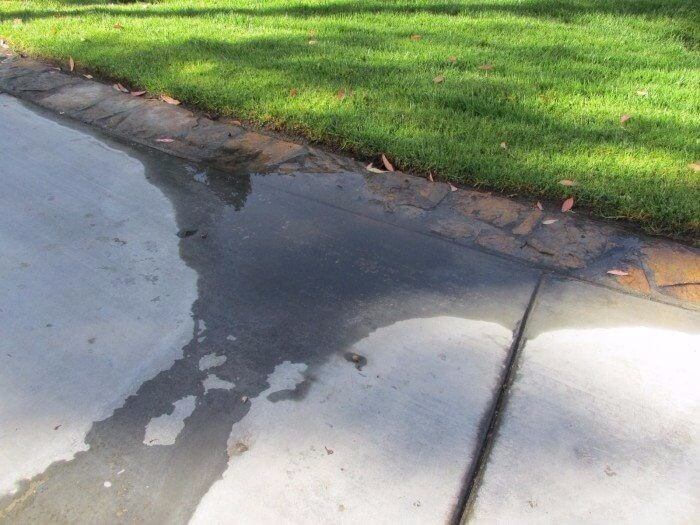 Water is one of the most damaging elements to a driveway. When your driveway is new, there should be little if any standing water after a good rain. Your contractor should have put good drainage and a solid underlying graded base layer that will help your driveway deal with rain and snow etc. Overtime, however, natural subsidence and erosion can occur and repeatedly parking heavy objects like cars and trucks might cause compression spots where water collects. Water pooling in these depressions will accelerate the ageing of your driveway as it works its way into small cracks and makes them bigger can causes erosion under the asphalt. In areas where freezing occurs the standing water is even worse as it can lead to the formation of ice which works to expand small cracks and imperfections.
Water is one of the most damaging elements to a driveway. When your driveway is new, there should be little if any standing water after a good rain. Your contractor should have put good drainage and a solid underlying graded base layer that will help your driveway deal with rain and snow etc. Overtime, however, natural subsidence and erosion can occur and repeatedly parking heavy objects like cars and trucks might cause compression spots where water collects. Water pooling in these depressions will accelerate the ageing of your driveway as it works its way into small cracks and makes them bigger can causes erosion under the asphalt. In areas where freezing occurs the standing water is even worse as it can lead to the formation of ice which works to expand small cracks and imperfections.
If you notice that your driveway has pooled water on it where it never used to, call in a driveway paving professional and have them take a look. Puddles on your driveway can be the first sign of a bigger problem.
6.) Fix cracks and holes right away
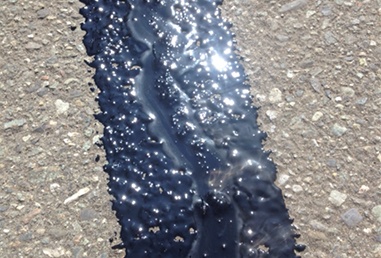
Just as with your teeth, avoiding getting cracks and holes fixed while they are small and easily dealt with just ensures that the problem will get more expensive and harder to fix. Once there is a clear hole in the asphalt surface the carefully prepared base layer is exposed to water erosion and will get worse faster and faster. Small holes and cracks can be easily addressed with seal coating; larger holes may require that the damaged asphalt be cut out the under lying aggregate be repaired and compacted and then a new asphalt layer (patch) be put on.
7.) Watch for Snow plough or heavy equipment damage
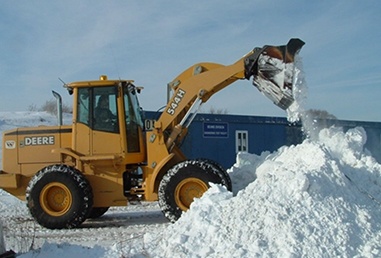
Anytime a vehicle or piece of machinery that is more massive than your driveway was designed for goes across it there is an additional stress. An example might be a delivery or garbage truck or snow clearing equipment. Snow ploughs are especially hard on asphalt and will often gouge it if not used very carefully. Once the snow is gone carefully inspect any damage done and have it repaired quickly while it is still, hopefully, minor.
We hope you find these tips helpful and are confident that if you maintain your driveway or parking lot as we recommend it should last for many many years. If you have questions or need specific help with an issue, please give us a call. We will be glad to help out be it a small repair, or it’s time to replace the old driveway with a new one.
